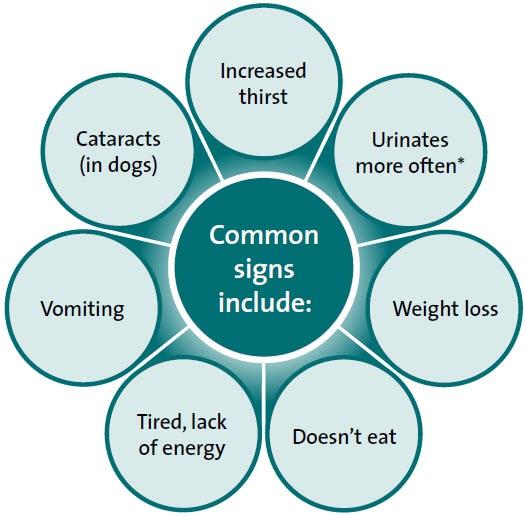
-
Find the right food for your petTake this quiz to see which food may be the best for your furry friend.Find the right food for your petTake this quiz to see which food may be the best for your furry friend.Health CategoryFeatured products
 Adult 7+ Small Bites Chicken Meal, Barley & Rice Recipe Dog Food
Adult 7+ Small Bites Chicken Meal, Barley & Rice Recipe Dog FoodSupports energy level and beautiful coat in mature dogs who prefer smaller kibble
Shop Now Hill's Science Diet Adult Sensitive Stomach & Skin Chicken Recipe Dog Food
Hill's Science Diet Adult Sensitive Stomach & Skin Chicken Recipe Dog FoodHill's Science Diet Sensitive Stomach & Skin dry dog food is gentle on stomachs while nourishing skin & promoting a lustrous coat.
Shop Now Adult Small Bites Chicken & Barley Recipe Dog Food
Adult Small Bites Chicken & Barley Recipe Dog FoodSupports lean muscle for dogs who prefer smaller kibble
Shop NowFeatured products Kitten Healthy Cuisine Tender Chicken & Rice Medley
Kitten Healthy Cuisine Tender Chicken & Rice MedleyDelicious tender chicken and rice in a mouthwatering sauce with precisely balanced nutrition to support 5 essential building blocks for lifelong health
Shop Now Adult Perfect Digestion Chicken, Barley & Whole Oats Recipe Cat Food
Adult Perfect Digestion Chicken, Barley & Whole Oats Recipe Cat FoodHill's Science Diet's breakthrough nutrition supports ultimate digestive well-being & healthy microbiome
Shop Now Adult Oral Care Chicken & Brown Rice Recipe Cat Food
Adult Oral Care Chicken & Brown Rice Recipe Cat FoodClinically proven kibble technology to reduce plaque & tartar build-up
Shop Now -
DogCat
- Cat Tips & Articles
-
Health Category
- Weight
- Skin & Food Sensitivities
- Urinary
- Digestive
- Kidney
- Dental
- Serious Illness
-
Life Stage
- Kitten Nutrition
- Adult Nutrition
Featured articles Adopting a Pet: What You Need to Know
Adopting a Pet: What You Need to KnowLearn the basics of adopting a pet, including where to begin and common questions you should ask yourself when deciding which kind of pet is best for you.
Read More Fun Ideas for Kids and Pets This Summer
Fun Ideas for Kids and Pets This SummerOutdoor summer activities with your dog or cat can be fun for kids, too. Learn how they also teach kids responsibility & creates a bond with their pet.
Read More Cat vs. Dog: Which Is the Best Pet for Me?
Cat vs. Dog: Which Is the Best Pet for Me?Learn about important differences between dogs and cats, such as cost & space considerations. These factors can help you decide which pet is best for you.
Read More -


Diabetes Mellitus in Dogs
Just like in humans, diabetes in dogs is serious, but manageable. Your dog can develop diabetes if she has the following conditions:
Obesity
Genetic predisposition - females are twice as likely to develop diabetes
Poor nutrition
Hormonal abnormalities
Stress

If your dog appears weak or thirsty, frequently urinates, experiences rapid weight loss, is depressed, or has abdominal pain, she could be diabetic.
This condition is usually caused by damage to the pancreas. The pancreas is responsible for producing the proper amount of insulin to control sugar levels. If your dog's pancreas is damaged, long-term and potentially life-threatening symptoms could occur and must be managed.


Tasty Tips
While there is no cure for diabetes mellitus, veterinarians recognize it can be controlled with insulin, exercise and proper nutrition. Fibre is key in managing the disease because moderate to high-levels of fibre lower insulin requirements and blood glucose levels. Fibre also makes the body more responsive to insulin.
It's also important to be consistent in the food you feed your pet. Feeding a veterinarian-recommended food with a consistent nutrient profile will help keep your dog's metabolism level stable so she can stay healthy.
For an accurate diagnosis and treatment options, always consult your veterinarian.


One of our staff authors prepared this article for you
Related products

Fewer calories for less active large breed dogs

Advanced nutrition shown to support joint health and improve mobility

Fewer calories for less active dogs

Supports healthy joints, lean muscle, and beautiful coat for large breed dogs
Related articles

Learn about choosing the right dog food to help ensure your mature older dog will receive the correct balance of nutrition.

Learn how to stop your dog from begging at the dinner table, and understand how it can help contribute to his health.

Though it may seem like your four-legged friend loves nothing more than to nap on the couch, dogs need regular exercise to stay healthy just like people do.

A little exercise can make a big difference. Not only will it enhance your pet’s health, but it will beef up your relationship as well.

Put your dog on a diet without them knowing
Our low calorie formula helps you control your dog's weight. It's packed with high-quality protein for building lean muscles, and made with purposeful ingredients for a flavorful, nutritious meal. Clinically proven antioxidants, Vitamin C+E, help promote a healthy immune system.
Put your dog on a diet without them knowing
Our low calorie formula helps you control your dog's weight. It's packed with high-quality protein for building lean muscles, and made with purposeful ingredients for a flavorful, nutritious meal. Clinically proven antioxidants, Vitamin C+E, help promote a healthy immune system.

